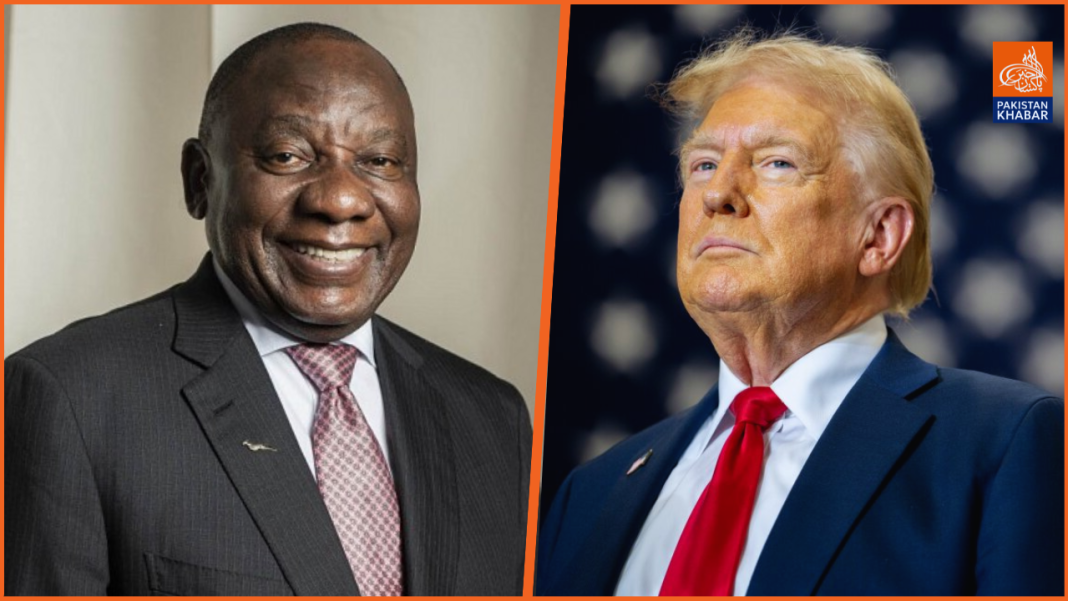Community groups representing white South Africans have declined the offer from US President Donald Trump to provide them with refugee status and resettlement in the United States.
The plan, outlined in an executive order signed by Trump on February 9, suspends US aid to South Africa in response to what the Trump administration characterizes as “rights violations” against the nation’s white citizens.
The order explicitly focuses on violent assaults targeting white Afrikaner farmers and the land expropriation legislation that permits the government to confiscate agricultural property from the ethnic minority of Afrikaners without compensation.
The South African government has firmly rejected allegations of systematic violence against white farmers, characterizing Trump’s assertions regarding the new land policy as misinformation.The South African Foreign Ministry issued a statement criticizing the US sanctions, describing the depiction of Afrikaners as a persecuted group as “ironic,” considering that whites, who constitute only 7% of the population, still maintain considerable economic privilege in the nation.
Afrikaners, who are the descendants of Dutch, French, and German settlers, communicate in Afrikaans and are differentiated from other white South Africans of British or various European origins.
Local groups have rejected Trump’s characterization of Afrikaners as facing oppression, asserting that they are not vulnerable.Two prominent organizations representing Afrikaners – the trade union Solidarity and the lobby group AfriForum – both released statements on Saturday rejecting the US offer. Dirk Hermann, CEO of Solidarity, representing approximately 2 million individuals, stated, “Our members work here, and they want to remain here, and they will continue to do so.” We are dedicated to creating a future in this location. We are committed to staying right here. Kallie Kriel, the leader of AfriForum, stated, “We do not wish to relocate.”
Their opposition to the offer sharply contrasts with Trump’s depiction of Afrikaners as a community urgently requiring assistance due to purported mistreatment.
The Trump administration asserts that the South African government has been remiss in tackling anti-white violence and enacting policies detrimental to the white minority, including land expropriation measures.The South African government, under the leadership of President Cyril Ramaphosa, has issued a strong critique of the US sanctions, asserting that the nation’s new policies are focused on rectifying the historical injustices stemming from apartheid.
The government asserts that the land expropriation law is an essential measure to address the historical injustices of colonialism and the marginalization of Black South Africans in terms of property ownership.
South Africa operates as a constitutional democracy. We hold all South Africans in high regard, regardless of race. A spokesperson for Ramaphosa stated, “The claim that Afrikaners experience arbitrary deprivation and consequently must leave their country of birth is entirely unfounded.”
In the meantime, Sithabile Ngidi, a market trader based in Johannesburg, conveyed her doubts regarding Trump’s involvement, emphasizing that she had not observed any systematic targeting of white South Africans.Ngidi expressed that Trump ought to have traveled from America to South Africa to witness the situation firsthand, criticizing Musk for sharing his opinion without direct experience in the country.
Ongoing Economic Advantages for White South Africans
Despite assertions of oppression, white individuals in South Africa continue to hold considerable economic advantages.
They possess approximately 70% of the nation’s private farmland, with only a minor fraction, around 1%, experiencing poverty.
A study conducted in 2021 by the South African Human Rights Commission indicated that 64% of Black South Africans are living in poverty, highlighting the persistent economic inequality that continues to be a legacy of apartheid.
The matter of land redistribution, especially regarding the new expropriation law, continues to be a subject of significant debate. Solidarity and AfriForum contend that the legislation disproportionately affects white landowners, a significant number of whom have cultivated the land for generations.
Furthermore, there have been expressed concerns regarding policies that encourage the use of the Afrikaans language and affirmative action initiatives in the business sector, which are perceived to disadvantage white South Africans.The South African government has expressed concerns regarding the Trump administration’s understanding of the situation, highlighting the emphasis on Afrikaners while overlooking the challenges faced by other marginalized communities in both South Africa and the United States.
It also highlighted what it characterized as a “campaign of misinformation and propaganda” regarding South Africa’s policies, especially the land reform issue.
South Africa is currently navigating the complex legacy of apartheid while addressing the challenges of economic equity. The discussions surrounding land expropriation and affirmative action policies are particularly intense.
The US sanctions and Trump’s refugee offer have added complexity to the situation, with critics arguing that the American president’s actions overlook the larger context of South Africa’s continued efforts to rectify historical injustices.




